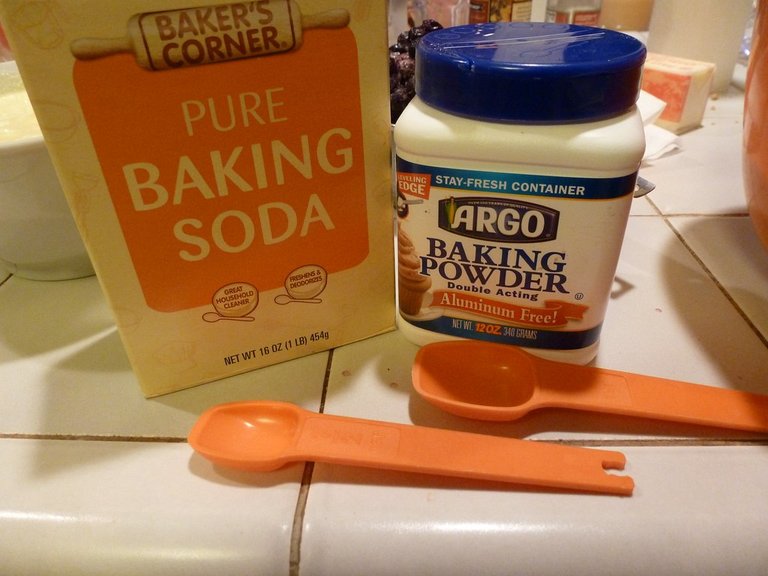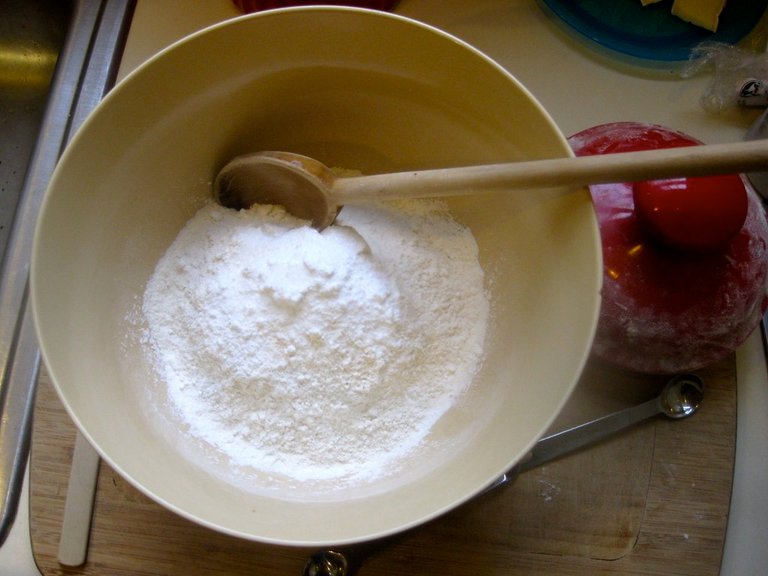The Chemistry of Baking Soda and Baking Powder
Baking soda and Baking powder, are they the same or are they different? This is a question that a lot people ask themselves because they really cannot tell if they are different or the same because of their names. To understand this, let's do a little bit of baking both old and new ways.
Let me quickly say that baking powder and baking soda are not the same but they are just made up of slightly different compounds and depending on the one you use, the chemistry of what you are cooking can change. Before our modern ways of baking, bakers who wanted to make their bread rise will have to leave the dough outside for a long period of time thereby allowing leavening agents which are wild yeast from natural sources especially the air to help make it rise.
This is because when yeast reach dough, it breaks down the sugar in the flour releasing CO2 bubbles in a process and this is known as fermentation. The quite common process used in beer. It is the carbon dioxide that is released that causes the dough to rise and this allows for the bread to become fluffy. Humans are just smart and we always look for ways to improve so over time, people decided to keep a little portion of the dough that has been fermented by the leavening agents or the flour water with the microbe so they can introduce it to the next dough they intend to make so it will help save time when next they want it to rise and this is still the same method we use in making sourdough breads.
If bakers decided to make bread without the introduction of yeast, it just didn't have the texture and feeling that it should have so they needed to either wait for it to naturally enter the dough or mix the dough with a previous one but in the 1830s bakers learned that there was a better way which required them to create a quick chemical so they do not have to weight for yeast to do the rising, and this was where chemical leavening agents like Baking Soda (Sodium Bicarbonate) was introduced.
Baking Soda (Sodium Bicarbonate) was made from Soda ash which was gotten from sodium rich marine plants such as seaweed. They could also get the soda ash synthetically by reacting table salt to other minerals and we have been using these synthetic methods for almost 2 centuries now. To allow for CO2 to be present in the dough, baker would mix Sodium Bicarbonate or baking Soda with Sour milk (Lactic acid) to produce Carbon dioxide bubbles.
In the 1840s, the cream of tartar (Potassium Hydrogen tartrate) which was an acidic byproduct of wine fermentation was discovered and it was mixed with baking soda to help create CO2 bubbles but then finding the cream of tarter was a little complex and prices differ depending on the season of grapes so there needed to be another way and this was where Eben Horsford came in. In 1856, he discovered acid from Monocalcium phosphate gotten from Beef Bones. The mixing of Monocalcium phosphate and Baking soda in the presence of water gave CO2 bubble.
In other not be able to sell it dry, Eben Horsford mixed Baking Soda with Monocalcium Phosphate and added cornstarch to keep it dry which he marketed as Horsford's Bread Preparation and this is what we know today as Baking powder. As we progressed, people started to get Monocalcium Phosphate from mines instead of beef bones.
We use both baking soda and baking powder till date and when you are asked, Baking soda is Sodium Bicarbonate while baking powder is Sodium bicarbonate mixed with an acid and cornstarch. So the next time you go to the grocery and you see them, you understand what they are used for and what they are made off.
Reference
https://www.acs.org/education/whatischemistry/landmarks/bakingpowder.html
https://www.seriouseats.com/cookie-science-baking-powder
https://www.britannica.com/science/tartaric-acid
https://www.epicurious.com/ingredients/why-aluminum-free-baking-powder-is-better-article
https://news.ncsu.edu/2014/05/baking-soda-powder/
https://www.acs.org/content/dam/acsorg
https://inquisicook.com/blog/cream-of-tartar-what-is-it


Thanks for your contribution to the STEMsocial community. Feel free to join us on discord to get to know the rest of us!
Please consider delegating to the @stemsocial account (85% of the curation rewards are returned).
Thanks for including @stemsocial as a beneficiary, which gives you stronger support.
♦️ You got 0.01 FELT for sharing high vibes on Hive.
📋♦️ FELT Info